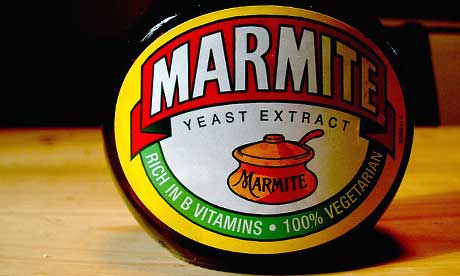
Dr Jane Wilson-Howarth sorts out the old wives' tale of travel health
Health is a recurring theme whenever you get chatting with other travellers. Some advice you’ll hear is utter nonsense and should be taken with a pinch of salt but other tips are worth listening to. Here we take a look at some of the more enduring rumours.
"Eating foods rich in vitamin B (eg Marmite) or taking vitamin B complex capsules makes you repellent to biting insects"
False: There is some evidence that taking vitamin B1 reduces the itch after being bitten by mosquitoes. Reducing the itch might encourage travellers to think they are not being bitten, which in malarious regions could be dangerous. Don’t assume that absence of itch means you have avoided bites.
True: Or at least partially true. If you take chloroquine – an increasingly superseded antimalarial – for more than six years continuously, the retina can be affected and the sight compromised. However, few people would take it for that long.
Partially true: A huge range of smelly products do confuse mosquitoes, which hunt using several senses, including smell. Perfumes and stinky feet attract mosquitoes but garlic, tobacco and many essential oils have some repellent properties.
Even so, if you’re in a region with a high risk of the serious form of malaria, you should use clinically tested repellents. The best are based on DEET; those based on Merck 3535 are also good. Natural repellents, such as Mosiguard, also have their place.
"It’s better to get malaria than risk the side-effects of antimalarials"
Depends where you are: This is true if you are travelling in regions where only the less dangerous forms of malaria are present or if the risk of catching malaria is very low or seasonal. In this case – and only after taking up-to-date specialist advice – you may be better simply protecting yourself with repellents and long clothes, and being aware of the risk so that if you get ill you can get treated.
Sorting out the correct malaria avoidance strategy can be complex – discuss your requirements and health background with a practice nurse or travel clinic.
False: It is best to just drink the alcohol on its own.
"It’s best not to take antimalarials on a long, round-the-world trip"
False: Not unless you will be at sea for the whole trip. You’ll probably need a long consultation at a travel clinic to sort out what you need to take, but remember that there are good clinics overseas, too – for example, I know of excellent ones in South Africa, North America, Australia, Nepal and Vietnam, so you don’t necessarily need to take a rucksack full of antimalarial tablets.
"You can’t pee in the Amazon – one of those nasty little fish (candiru) will swim up inside you"
False: The pencil-lead-sized candiru fish does exist in the rivers of the Amazon basin; it is a parasite of other fish and lodges in their gills. However, despite much searching and asking Brazilian doctors, no one seems to know about a real case, and the idea that penile amputation is the only way to get it out must be pure fiction.
I’ve also heard stories about British soldiers in South-East Asia who were so worried about the idea of leeches climbing inside them that they slept with condoms on. They didn’t need to, poor guys!
True: Spirit alcohol – whisky, rum, gin, pisco etc – is an excellent antiseptic and can be used to clean wounds. It is alright to clean any wound with plenty of ‘unsafe’ water – eg from the river – because flushing with lots of less-than-pure water will wash out grit and dirt. The wound can then be dowsed with whisky. Spirit alcohol also kills microbes (including viruses) and reduces the chances of disease transmission after an animal or tick bite.
False A strong solution of salt in water is antiseptic but the concentration of sea water
is actually quite favourable to the survival of cholera and some other offensive microbes.
True: The high concentration of sugar makes honey a powerful yet soothing antiseptic, and its healing properties have been well proven after burns.
However, I am uncertain of the practicalities of managing what would become a sticky mess if this remedy was used when travelling – presumably it would attract flies.
False: Grapefruit juice does interfere with quite a number of prescription medicines, including Viagra and cholesterol-lowering medications.
It also ‘possibly inhibits the metabolism’ of the emergency malaria cure Riamet (artmether/ lumefantrine) and shouldn’t be taken with this. Other antimalarial tablets can be taken with grapefruit juice.
Probably true: There is some evidence that bromelain (which is derived from pineapples) and papain (the meat tenderiser extracted from papayas) may help prevent thrombosis.
Garlic and ginger are also traditionally used to thin the blood, while flavinoids in grape seed extract, tea, grape skins, red wine and berries may help reduce the risk of clots.
Essential fatty acids (found in oily fish, cod liver oil and cold pressed vegetable oils) can reduce blood stickiness by modifying levels of prostaglandins.
False: Double Nobel laureate Linus Pauling almost lost his reputation on this one. He showed that the levels of vitamin C circulating in the body plummet when you have a cold, and he theorised that taking large doses of vitamin C would therefore treat it. Clinical trials showed that, untreated, a cold lasts for a week, while a cold treated with vitamin C – or echinacea – lasts seven days.
False: In fact, the opposite seems to be true. Generally, the more the immune system is stimulated through immunisation or infectious disease ‘experience’, the stronger the immune response will be.
True: But if you are gassy and your insides are ‘fermenting’, let it go flat first. Adding a pinch of salt to each bottle allows the body to absorb more fluid from it and helps reduce that bloated feeling.